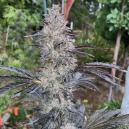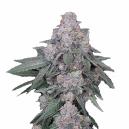Cannabinoids To Treat Psoriasis
Published :
Nov 28, 2018
Categories :
Medical cannabis

Cannabis had long only been regarded as recreational drug. Only in recent times we learned about the possible therapeutic benefits of cannabis, respectively the active compounds in it. Among the potential medicinal uses for cannabinoids may be the treatment of psoriasis
WHAT IS PSORIASIS?
Psoriasis is an immune-mediated condition that causes raised, red, scaly patches to appear on the surface of the skin. At times, these skin patches can also crack and bleed, not to mention the itch they can cause. People with psoriasis may also experience inflammation and swelling in other parts of their body.
The National Psoriasis Foundation has found that up to 30 percent of people with psoriasis also develop psoriatic arthritis, which leads to stiff and inflamed joints. Unfortunately, there is still no cure for psoriasis. But hope is on the horizon: Researchers believe that cannabinoids are effectively reducing inflammation and that they help to reduce the itch and can slow unwanted cell growth. They are now looking into cannabis as a potential treatment for psoriasis.

HOW CANNABIS COULD HELP WITH PSORIASIS
Cannabinoids are the active compounds in cannabis. By now, more than 120 cannabinoids have been isolated from the cannabis plant, with THC and CBD being the two major cannabinoids that you may possibly know.
The human body produces cannabinoids naturally— the so-called endocannabinoids. These endocannabinoids interact with the endocannabinoid system in our body, which controls bodily functions, such as immune response, inflammation, appetite, mood and many others.
What’s important is that the cannabinoids in cannabis interact with the endocannabinoid system in our body in much the same way as our body’s own endocannabinoids. This means that the compounds in cannabis also affect these bodily functions, where they can provide potential therapeutic benefits, including for treating psoriasis.
CANNABINOIDS REDUCE INFLAMMATION
In both psoriasis and psoriatic arthritis inflammation is one major symptom. Studies have provided evidence that certain cannabinoids, such as THC have an anti-inflammatory effect and are involved in immune regulation. This suggests that cannabinoids can work against a number of inflammatory and autoimmune diseases. Psoriasis is one of them.
There is also evidence that cannabinoids might benefit patients with psoriasis by affecting the interaction between the body's immune and nervous systems. This suggests an additional path how cannabinoids are possibly helping with psoriasis.
CANNABINOIDS FOR PAIN RELIEF
Although scientific research in this field is still ongoing, using cannabinoids such as CBD for treating chronic pains is among the most common uses among medicinal cannabis users. Research does indeed suggest that cannabis can relieve pain. Due to its pain-relieving properties, cannabis can likely also help those with psoriasis and psoriatic arthritis to manage the pain and discomfort.
There is big potential for using cannabis, respectively the active compounds in it for the treatment of painful conditions, such as psoriasis or arthritis. Patients can consume products that contain cannabinoids orally in the form of tinctures or CBD oils. They can also get their dose of cannabinoids by using vaporizers. But cannabinoids can also provide relief when used topically, such as when they are used in ointments, creams or soaps. Such topical cannabinoid-based products could be effective to help with skin irritation and they may help to speed up the healing process, in addition to reducing the pain.
CANNABINOIDS SLOW DOWN UNWANTED CELL GROWTH
The skin cells in people who suffer from psoriasis grow at an abnormally fast rate, which causes the buildup of itchy scales and lesions. Cannabinoids may slow down the growth of these out-of-control skin cells.
A study performed in 2007 found that several cannabinoids, including THC and CBD, slowed the growth of cells called keratinocytes, which are the cells in the outermost layer of the skin. The results of this study suggest that these cannabinoids can provide benefits in the treatment of psoriasis.

CANNABINOIDS CAN SPEED UP WOUND HEALING
In patients who have psoriasis, the affected skin is often cracking and bleeding, which causes them a substantial amount of pain. It is now believed that cannabinoids also play a role in fibrogenesis, which is the healing and repair of the skin, although these studies for now have only been conducted on mice. Likewise, the anti-inflammatory effects of cannabinoids may provide added benefits for the wound healing process.
CANNABINOIDS REDUCE ITCHING
The compounds in cannabis can possibly provide relief for the itching that patients suffer from with certain dermatological conditions such as dermatitis, prurigo, pruritus, lichen simplex chronicus and psoriasis.
In one study in 2017, researchers found that an ointment containing palmitoylethanolamide, which is a fatty acid that acts as a pain reliever, anti-inflammatory and immune system regulator works by affecting the body’s cannabinoid receptors. This would strongly suggest that cannabinoids can also play a role in reducing itching.
PSORIASIS AND STRESS
It is known that stress can trigger psoriasis flare-ups and that there are possibly also links between depression and inflammation. Not only can stress aggravate and worsen the symptoms of psoriasis, the condition itself often has a negative impact on people’s mental well-being. Lower doses of THC have been found to help with stress relief. This suggests that it can be beneficial for people who suffer from psoriasis and related stress.
ARE THERE RISKS OF TREATING PSORIASIS WITH CANNABINOIDS?
Before people are looking into treating their psoriasis or any other health condition with cannabinoids, they should always consult with a healthcare professional first. This can be important for a variety of reasons.
Although cannabinoids are generally safe when taken in appropriate doses, they could interact with other medications that patients are taking and possibly make these less effective. A doctor can advise you whether taking cannabinoids may possibly have such an unwanted side effect.
Likewise, there are various ways in how someone may consume cannabinoids. Smoking cannabis may be less advisable for patients with skin conditions such as psoriasis, since the chemicals contained in smoke may at times aggravate skin conditions and make them worse. Smoking cannabis would also not be advised for people who suffer from respiratory problems, such as asthma or bronchitis. Your doctor can let you know whether using an inhaler or vaporizer would be safe.
Tinctures or oils that contain cannabinoids, such as CBD, THC or both are probably the safest option for treating psoriasis. It is however important to know that these products may not be legal in all countries or states. Before considering these products, make sure that you are informed about your local laws.






































